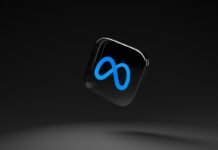
Forget the idea that AI chatbots are just productivity tools. For the youngest generation in the workforce, they are rapidly becoming something far more personal: a coworker, a therapist, and a secret-keeper. A new survey from Resume.org reveals a striking picture of this new relationship. The October 2025 poll of 1,000 U.S. Gen Z workers found that this generation isn’t just using AI; they’re confiding in it. This matters because it signals a fundamental shift in workplace dynamics, where AI is filling a social and emotional void left by remote work, for better or for worse.
The survey, which polled full-time workers (ages 18-28) who used a chatbot in the past week, shows just how deeply embedded AI has become. This isn’t a tool pulled out once a week; it’s an all-day companion. A staggering 4 in 10 Gen Z workers reported talking to AI for at least one hour every single day.
While 77% say it’s for job-related tasks—and report a corresponding 77% boost in productivity—that’s only half the story. The lines between professional and personal use are completely blurred. During the workday, 42% use it to discuss non-work topics, 38% use it for entertainment, and 33% admit to using it to talk through work-related stress or frustrations. Another 15% even use it to look busy when they aren’t working.
A friend in the machine
This constant interaction is clearly reshaping social dynamics at work. According to the survey, 6 in 10 Gen Zers talk to AI as much or more than their human coworkers. Even more telling, nearly half (45%) of respondents said their AI chatbot knows them better than their boss.
This connection isn’t just professional; it’s deeply personal. When asked to describe their chatbot, 1 in 4 called it a “friend,” “therapist,” or “coworker,” rather than just a “tool.” This explains the most intimate finding of the poll: one in three (34%) admitted to telling their AI something they have never told another human.
So, what’s going on here? Kara Dennison, Resume.org’s Head of Career Advising, explains it as a symptom of the modern, digital-first workplace. “Many Gen Zers entered hybrid or remote jobs where casual mentorship or watercooler chats never formed, so AI fills that relational void,” Dennison says. “It listens, it responds thoughtfully, and it never criticizes. That creates a sense of psychological safety that’s often missing in corporate hierarchies.”
Yubico survey: 62% of Gen Z engaged with phishing scams
Is AI the new Google?
Beyond the emotional connection, the survey signals a major practical shift in how this generation seeks information. Google may have a real fight on its hands. When they need quick answers, 39% of Gen Z workers now turn to AI first, nearly catching up to Google (47%). The reasons are simple: users described the AI’s answers as being clear (63%), fast (56%), detailed (56%), and—critically—nonjudgmental (33%).
Productivity vs. people
While the productivity gains are clear, the report ends on a strong note of caution. This deep reliance on AI for emotional support and problem-solving has a serious potential downside. “While it’s encouraging that AI can provide accessible support… it’s also concerning if it replaces genuine human connection,” warns Dennison.
The ultimate risk, she notes, is that younger professionals “may be left without the interpersonal resilience, emotional intelligence, or mentorship they need to thrive long-term.” The AI “therapist” is a convenient, judgment-free crutch, but it’s no replacement for the complex, and sometimes difficult, realities of genuine human connection.
































